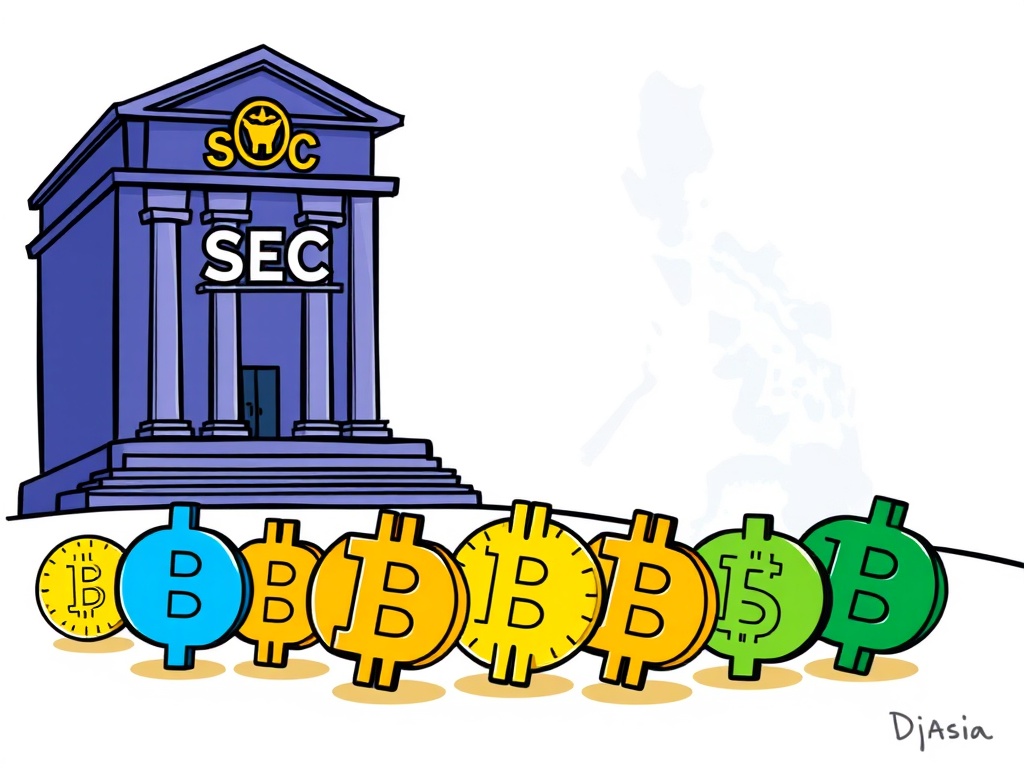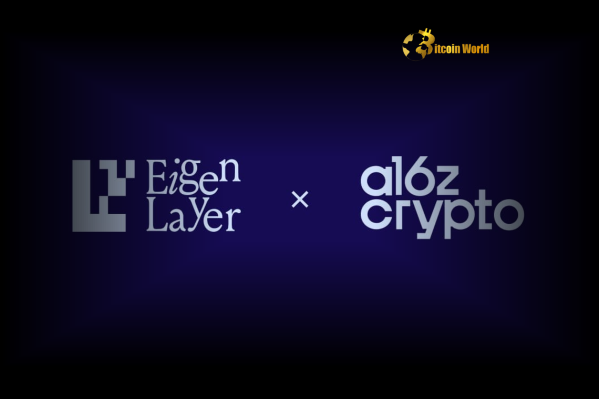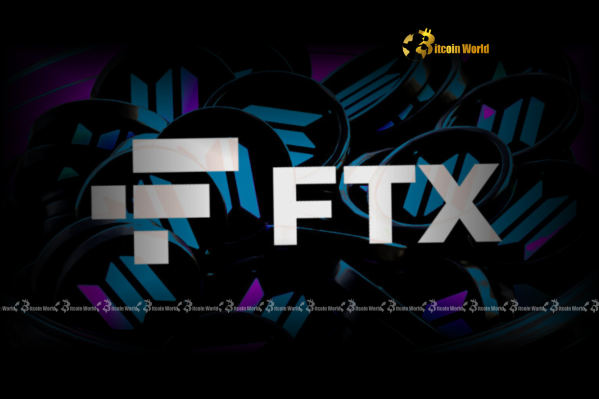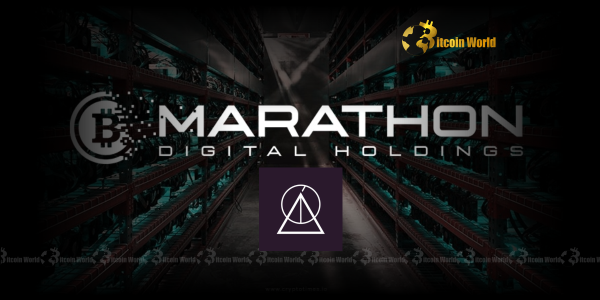BitcoinWorld

Philippines Crypto Regulation: 10 Exchanges Face Stern Warning for Unauthorized Operations
The dynamic world of digital assets continues to attract significant attention from regulatory bodies globally. A pivotal development recently unfolded in Southeast Asia, directly impacting the landscape of Philippines crypto regulation. The nation’s Securities and Exchange Commission (SEC) has taken a firm stance, issuing a public advisory that sends a clear message to the cryptocurrency industry operating within its jurisdiction.
What Prompted the SEC’s Action on SEC Crypto Exchanges?
On August 4, the Philippines SEC officially released an advisory on its website. This critical statement explicitly named ten prominent cryptocurrency exchanges, identifying them for operating without the necessary authorization required by the nation’s new legal framework. This decisive action aligns directly with the country’s recently enforced Philippines crypto rules, which became effective on July 5.
The core principle behind these new regulations is straightforward: any crypto exchange wishing to provide services to users in the Philippines must first complete a formal registration process with the SEC. This requirement is a foundational step designed to enhance investor protection and cultivate a more secure and transparent financial ecosystem for digital assets.
Which Platforms Are Under Scrutiny for Operating as Unauthorized Crypto Platforms?
The list of identified exchanges is extensive and includes several platforms with a significant global user base. These entities are now officially on notice for their failure to register under the new regulatory framework, which mandates proper crypto exchange authorization.
The ten platforms named in the SEC’s advisory are:
- OKX
- Bybit
- KuCoin
- Kraken
- MEXC
- Bitget
- Phemex
- CoinEx
- BitMart
- Poloniex
This advisory serves as a potent reminder that adherence to local legal and regulatory frameworks is paramount, irrespective of an exchange’s international operational scope. Operating without the appropriate authorization can lead to severe consequences, including potential service disruptions or legal penalties within the country.
What Do These Philippines Crypto Rules Mean for Local Users?
For individuals in the Philippines currently utilizing these listed platforms, this development necessitates careful consideration and awareness. The SEC’s primary motivation for this action is robust investor protection. When exchanges operate without official authorization, they may not be subject to the same rigorous oversight, stringent anti-money laundering (AML) protocols, or essential consumer safeguards that fully regulated entities are legally bound to follow.
Therefore, users are strongly advised to proactively verify the registration status of any platform they choose for trading, investing, or simply holding their digital assets. Ensuring that you interact only with entities that comply with the established Philippines crypto regulation is a crucial step towards safeguarding your investments and personal data in the volatile crypto market.
The Broader Impact: Navigating Crypto Exchange Authorization and Compliance
The SEC’s advisory is a clear and unequivocal signal of the Philippines’ determined commitment to effectively regulate its burgeoning crypto space. It serves as a stark reminder to both established and emerging crypto businesses that regulatory compliance is no longer an option but a mandatory requirement. The nation is actively working to strike a delicate balance between fostering innovation in the digital asset sector and ensuring paramount investor safety, thereby aiming to create a structured and secure environment for all cryptocurrency transactions.
This proactive regulatory push in the Philippines is not an isolated incident; it is part of a much broader global trend. Governments worldwide are increasingly striving to bring the often-volatile and previously unregulated crypto market under comprehensive financial oversight. For the unauthorized crypto platforms specifically mentioned in the advisory, the most prudent path forward will likely involve initiating the necessary registration process with the SEC or facing the very real possibility of severe restrictions on their ability to offer services to Filipino residents.
This situation highlights a critical challenge for global crypto exchanges: adapting to diverse and evolving national regulatory landscapes. Each country is developing its own approach, making it essential for platforms to maintain a dedicated focus on local compliance. The proactive measures taken by the Philippines SEC underscore a growing global consensus: robust regulatory frameworks are indispensable for the long-term health and stability of the digital asset industry.
In conclusion, the decisive action taken by the Philippines SEC underscores a significant shift in how digital assets are being governed globally. This move, directly influenced by the new Philippines crypto rules, powerfully emphasizes the absolute necessity for all cryptocurrency platforms to obtain proper crypto exchange authorization. For users, staying diligently informed about the regulatory standing of their chosen exchanges is not just advisable but absolutely paramount for ensuring a secure, compliant, and ultimately successful crypto journey. The trajectory of digital assets in the Philippines, and indeed worldwide, will undeniably be shaped by these ongoing and intensifying efforts to enforce robust and transparent regulatory frameworks.
Frequently Asked Questions (FAQs)
Why did the Philippines SEC issue this advisory?
The Philippines SEC issued the advisory to enforce its new crypto rules, which require all crypto exchanges operating in the country to be properly registered. This action aims to protect investors and ensure compliance with local regulations.
Which crypto exchanges were named by the SEC?
The SEC named ten crypto exchanges: OKX, Bybit, KuCoin, Kraken, MEXC, Bitget, Phemex, CoinEx, BitMart, and Poloniex. These platforms were identified for operating without proper authorization.
What are the new crypto rules in the Philippines?
The new Philippines crypto rules, which took effect on July 5, mandate that all crypto exchanges offering services to users in the Philippines must register with the SEC to obtain the necessary crypto exchange authorization.
What should Filipino crypto users do now?
Filipino crypto users are advised to verify the registration status of any platform they use. Engaging with SEC-authorized exchanges helps ensure greater investor protection and adherence to regulatory standards.
Does this mean these exchanges are banned in the Philippines?
The advisory indicates these platforms are operating without proper authorization. While not an outright ban, it signals that they are non-compliant with the new Philippines crypto regulation and may face restrictions if they do not register.
Did you find this information helpful? Share this article with your network to keep them informed about the evolving regulatory landscape in the cryptocurrency world!
To learn more about the latest crypto regulation trends, explore our article on key developments shaping global crypto compliance and investor safety.
This post Philippines Crypto Regulation: 10 Exchanges Face Stern Warning for Unauthorized Operations first appeared on BitcoinWorld and is written by Editorial Team





